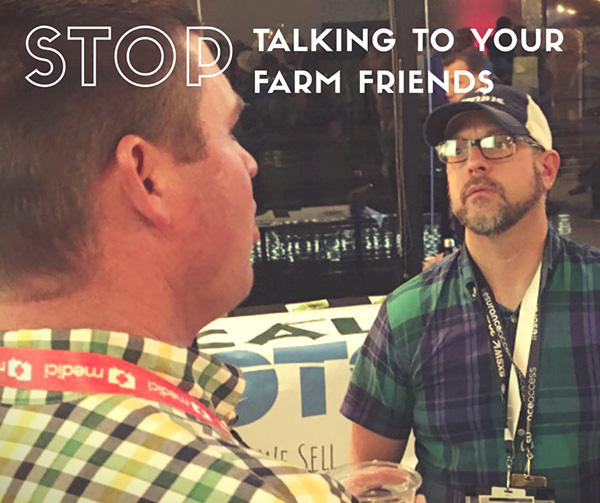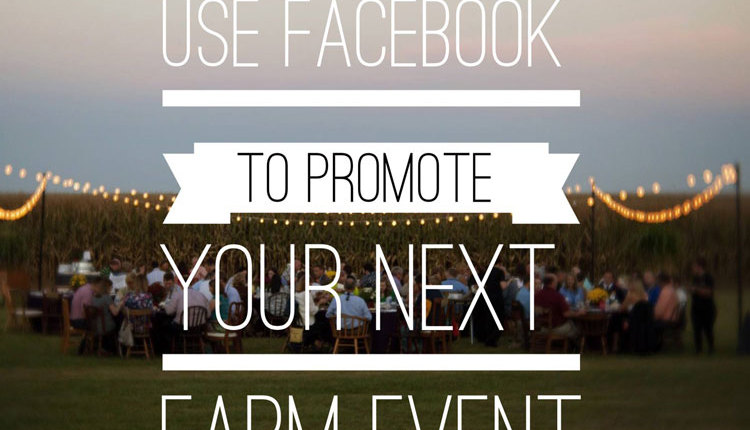
Ever notice how much time you spend talking to others who farm, between attending ag meetings and sitting on ag boards and committees? Talking to our farm friends is so easy. It's fun. It's safe. You can use language you're familiar with, aka farm lingo, and not worry about being attacked for something you say.
This idea has manifested online, too. And now we’re all living in "filter bubbles," or online echo chambers, where algorithms are feeding us more and more people and information based on our interests. This causes us to lack outside perspective and thoughts beyond those that are most comfortable and align closely with our own.
So, what's the problem?
We don't have to convince our friends, family, or community that farming is sustainable, that farmers take care of their cows, or that a healthy product is always waiting on the grocery store shelf. Those that live it every day know the truth.
Ask yourself:
"Are you reaching and connecting to people who know nothing about farmers or farming?"
OR
"Are you just preaching to the choir most days?"
If you feel you're preaching to the choir, it’s time to break outside your comfortable community.
- Take an inventory of your news sources. Where are you currently getting information? If most of your daily emails, mail, and social media contacts revolve around agriculture and dairy, venture out and follow something that is completely different. Try listening to a podcast for the first time (Freakanomics, HBR IdeaCast, How I Built This). Subscribe to a new newsletter (The Skimm, Medium, TechCrunch).
- Expand your thinking. You can't connect with someone about a topic until you understand both sides. Listen to a podcast, subscribe to a new blog, or watch a documentary that is completely outside your comfort zone. If the topic makes you squeal, it's probably a good choice. Consider an anti-ag documentary (Cowspiracy, The Future of Food).
- Choose one topic to explore more. We all have hobbies and interests outside the farm — maybe not a lot of time for them — but they're there. Think about your interests. Maybe it's technology. Stay on top of what other industries are doing in technology and connect with some of the top thinkers in this field. A group of dairy farmers just returned from SXSW (South by Southwest Conference and Festival), learning about the latest digital trends and talking to people who don’t typically touch agriculture. There’s also an online community (Dairy Hub) for dairy that focuses on new digital trends — join now!
- Use the right social media channels. You can use Facebook, but identify the right groups to connect with. With Instagram, use the right hashtags to connect your photos and videos to much larger topics outside of ag and farming (sustainability, health and wellness, etc.). Use Snapchat, not just to send 'disappearing' snaps to your friends, but to join stories related to food and farming.
- Join an online group that's not ag related. Facebook groups are fantastic and provide us with support and helpful information! But it's too easy (and enjoyable) to spend a lot of time in groups filled with people who are already connected to ag. Think about your interests outside dairy — maybe it's arts and crafts, brewing beer, baking, or CrossFit. Go be the "farmer" in that group. Facebook's search is very easy to use and will line you up with the top groups in your interest area.
- Listen first and for a while. Would you enter a party and announce, “Hey, your dairy farmer is here!” Probably not. So, don’t do that online either. You should earn someone's attention before then so they'll hear you out. Use your listening skills to learn about people within that group. What do they like? What are they most interested in? And what do you have in common? This will build your credibility to share your farm story down the road.
- Share your experiences. This is where your ag-focused or dairy-focused Facebook groups come back in. Report back and tell us about your experience in the Dairy Hub. What have you learned? What tips do you have for others willing to explore outside the comfort of their community?
Our farming friends and communities are a great support system that can create a positive impact, but just imagine the impact if each farmer spent more time exploring and influencing other online communities!
The authors work for Dairy Management Inc.






